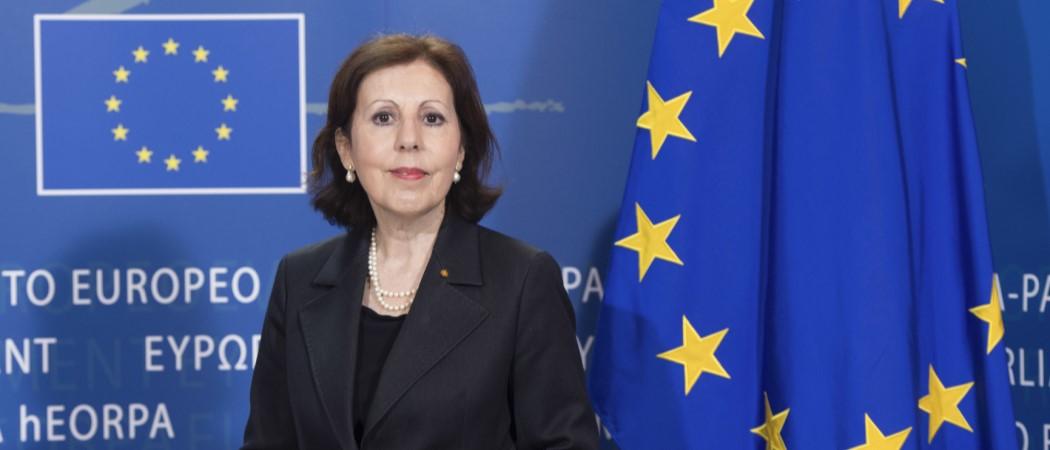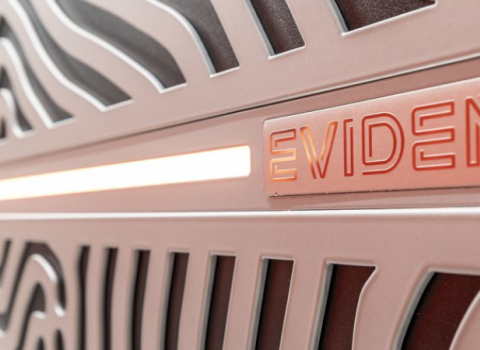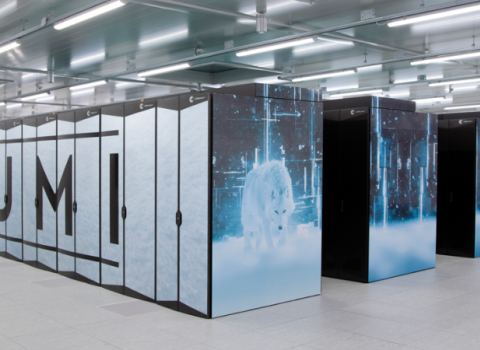MEPs vote through joint position on €8B supercomputing collaboration, aiming to ensure more balance between small and large partners. This paves the way for 11 other big research partnerships in Horizon Europe

Maria da Graça Carvalho, Member of the European Parliament. Photo: European Parliament
The European Parliament is seeking to ensure all eleven Horizon Europe research partnerships are more open and less bureaucratic than their predecessors.
Setting down the markers, on Wednesday MEPs agreed a joint position on the first partnership of the bunch, the EuroHPC €8 billion high-performance computing project, calling for greater openness and simpler management.
In the past, these ‘joint undertakings’ between the Commission, governments and industry have been criticised for making it difficult for smaller players to take part and giving industry too much say in EU research programming. MEPs are now seeking to get the balance right, as their decisions on the partnerships this year will set the tone for the next seven years.
EuroHPC is the first Horizon Europe partnership to pass through the hands of MEPs, setting the scene for faster adoption of the remaining ten industrial partnerships that are expected to launch in the coming year.
The joint position is the latest step in a long run-up to the final decision on the details of the supercomputing partnership. EU research ministers, who will have the final say over the regulation, are expected to set out a joint position at a Council meeting tomorrow. Once the Parliament’s report is presented in plenary, in the second half of June, the Council will be able to close the file this summer.
EuroHPC will be the first joint undertaking, but it will not be the first public private partnership launching under Horizon Europe. The total Horizon Europe partnership package has 49 different initiatives covering areas as diverse as AI, animal health and biodiversity. Only the eleven joint undertakings need policymakers’ approval. The rest are in the hands of the Commission, with the first eleven expected to launch in June.
Boosting supercomputing
For EuroHPC, MEPs believe openness to different partners will be key to ensuring the supercomputing infrastructure serves Europe’s researchers and businesses.
"The success of this initiative depends, to a great extent, on the involvement, access and awareness that it manages to generate among the interested parties," said the Parliament’s rapporteur for the file, Maria da Graça Carvalho. "This means that we must ensure that all users, including SMEs and start-ups, have access to the infrastructure and services, as well as to scientific and commercial data repositories."
All this is contingent on the EU investing more in microprocessor and quantum computing research, ensuring availability and access to open data, boosting digital skills, and building synergies with other EU programmes to increase investment, the Parliament’s report notes.
Carvalho’s report, which was voted through in the research and industry committee ITRE, will now be presented in plenary and feed into the Council’s final push finalising the regulation of EuroHPC this summer. Until then, the predecessor of the partnership will continue running under the same name.
Ten more to go
EuroHPC is ahead of the other ten joint undertakings thanks to the Commission submitting its proposal for the partnership last September, five months before the others were submitted.
Nine public private partnerships will be rushed through the Council as a package deal. They cover areas such as global health, hydrogen, rail, clean aviation and circular bio-based industries. Around €10 billion from Horizon Europe will be invested in these joint initiatives, with industry making matching contributions.
On Wednesday, MEPs debated the draft report on this package deal.
The remaining partnership between the Commission and EU member states in metrology, is being handled as a separate file. As things stand, Parliament sees few issues with the proposal for metrology, largely welcoming the Commission’s draft. Carvalho’s main aim will be to simplify it. As a partnership between the Commission and member states, “It tends to be very complex, very bureaucratic,” she told the MEPs.
Parliament is expected to adopt its positions on the ten remaining partnerships in September, following an ITRE vote in July.
Wish list
In the past, SMEs, civil societies, some research institutes and universities found it difficult to get involved with these big collaborative projects led by industry giants.
Some MEPs supported going a step further than Carvalho and incentivising small companies to take part. “I think we also need to make it clear that the participation of SMEs in the undertakings should also be supported by favourable conditions that take into account their smaller size as well as their more limited bargaining power across the value chain in comparison with large players,” said Josianne Cutajar, shadow rapporteur on the file from the S&D group.
Another persistent issue is the bureaucracy. This time around, the Commission has proposed a single system for managing the joint undertakings. Parliament welcomed the idea but adjusted the proposal to help industry avoid unnecessary paperwork.
Christian Ehler from the centre-right group supported the modification, adding that the rules proposed by the Commission do not benefit industry, which has largely opposed joint management. “I think it’s a simplification for the Commission but not the joint undertakings,” he said.
Carvalho singled out two partnerships where the budgets do not meet the ambition.
One is the global health partnership, which aims to reduce the burden of infectious disease in sub-Saharan Africa. Here, Carvalho is pushing to increase the Commission’s contribution from €800 million to €1 billion.
The other one is the Clean Aviation partnership aiming to decarbonise the airline industry. That goal requires more funding, Carvalho believes, suggesting an increase in the EU contribution from €1.7 billion to €2.5 billion, closer to the €3 billion contribution expected from industry.
Not all MEPs were happy with the proposal, some preferring to spread out any top-ups to the budget across the different topics.
MEPs can suggest amendments to Carvalho’s propsals until 4 June. Then, the final version will be put to a vote in ITRE in July and presented in plenary in September. The goal is to finalise the regulation by the end of the year.





 A unique international forum for public research organisations and companies to connect their external engagement with strategic interests around their R&D system.
A unique international forum for public research organisations and companies to connect their external engagement with strategic interests around their R&D system.